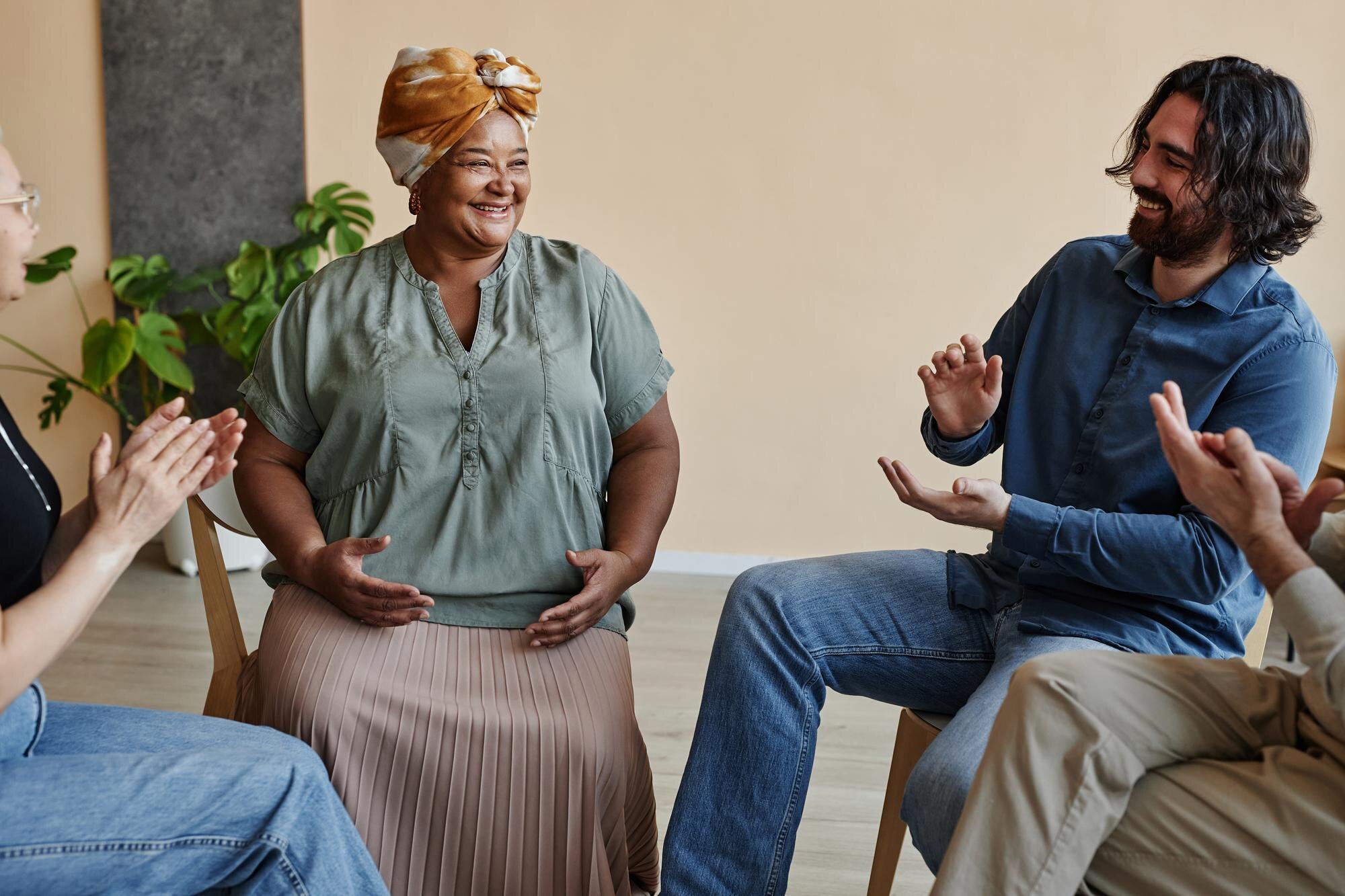
Breaking Free: The Transformational Power of Non-Clinical Coaching for Addiction Recovery
Forget everything you know about addiction recovery. Traditional therapy isn’t the only path to healing. Non-clinical coaching offers a fresh way to break free from compulsive behaviors and reclaim your life. Imagine a space where you’re not labeled or judged, but understood and empowered. VK Circle’s approach focuses on emotional healing, providing tools that transform pain into strength. This isn’t about fixing you—it’s about reconnecting with yourself. Ready to discover how non-clinical coaching can change your story?
The Power of Non-Clinical Coaching

Non-clinical coaching represents a paradigm shift in addiction recovery. It focuses on healing rather than diagnosis, empowering individuals to reclaim their lives. This approach emphasizes understanding, emotional healing, and self-worth. Unlike traditional therapy, coaching avoids labels, fostering a supportive environment for transformation.
Breaking Free from Labels
Labels can be limiting. They often pigeonhole individuals, overshadowing their potential for growth. Non-clinical coaching provides an alternative that emphasizes understanding over categorization. According to Michael Walsh, non-clinical coaches focus on personal empowerment rather than diagnostic labels.
Instead of defining individuals by their struggles, this approach nurtures their strengths. It encourages clients to see beyond their labels, fostering a mindset of growth.
Labels can limit recovery: They often focus on what’s wrong, rather than what can be improved.
Coaching promotes growth: By moving past labels, individuals can explore their true selves.
Empowerment over diagnosis: Clients are encouraged to take control of their growth journey.
This shift from labels to empowerment allows individuals to break free from restrictive identities, opening pathways for personal development and emotional healing.
A Safe Space for Healing
The creation of a safe, judgment-free space is crucial for effective recovery. Research shows that a supportive environment significantly impacts healing. In non-clinical coaching, the focus is on creating a nurturing atmosphere.
This approach allows individuals to explore their emotions without fear. Coaches work to provide a space where clients can be honest, open, and vulnerable. This environment is essential for genuine emotional liberation and growth.
Foster a non-judgmental space: Encourage clients to express themselves freely.
Prioritize emotional safety: Build trust through consistent, empathetic support.
Encourage self-discovery: Allow clients to explore their feelings and develop insights.
With the right support, individuals can navigate their emotions, leading to profound personal growth and healing.
Emotional Healing Over Diagnosis

Emotional healing takes precedence in non-clinical coaching, focusing on the root causes of addiction rather than simply addressing symptoms. This method empowers individuals to rebuild their self-worth and tackle compulsive behaviors effectively.
Tools for Lasting Change
Non-clinical coaching equips individuals with practical tools for their recovery journey. These tools offer a proactive approach to emotional healing, supporting lasting transformation. According to PMC studies, practical interventions are more effective in managing addiction.
These tools are designed to address emotional pain and facilitate self-discovery. By nurturing resilience and self-awareness, individuals can achieve sustainable change.
Mindfulness techniques: Encourage present-moment awareness to manage compulsive behaviors.
Emotional regulation skills: Equip clients to navigate intense emotions constructively.
Goal-setting strategies: Empower individuals to set and achieve personal milestones.
These tools, integrated into daily life, foster self-awareness and resilience, key elements for long-term recovery.
Reconnecting with Self-Worth
Rebuilding self-worth is a core component of emotional healing. Non-clinical coaching emphasizes this by focusing on personal strengths and achievements. As Leora BH explains, recognizing one’s value is crucial for overcoming addiction.
A strong sense of self-worth allows individuals to break free from negative patterns. By fostering self-love and acceptance, the coaching process empowers individuals to view themselves positively.
Celebrate small victories: Acknowledge progress to build confidence.
Focus on strengths: Highlight personal achievements and capabilities.
Encourage positive self-talk: Replace self-criticism with affirmations of self-worth.
This empowerment helps individuals navigate their recovery journey with confidence and resilience.
Empowering Your Addiction Recovery

Empowerment is at the heart of successful addiction recovery. Non-clinical coaching focuses on transforming pain into emotional liberation, enabling individuals to reclaim their lives.
The VK Circle Approach
VK Circle’s unique approach integrates emotional healing with empowerment strategies. This method emphasizes understanding the emotional roots of addiction and provides tools for sustained recovery.
By prioritizing emotional clarity and empowerment, VK Circle helps individuals achieve lasting change. This approach is tailored to meet the diverse needs of those seeking non-clinical support.
Personalized coaching plans: Tailor the approach to individual needs and goals.
Focus on emotional clarity: Help clients understand their emotions and triggers.
Empower through education: Provide skills and knowledge for independent growth.
This comprehensive approach ensures individuals have the support they need for effective recovery.
From Pain to Emotional Liberation
Transforming emotional pain into liberation is a powerful journey. VK Circle guides individuals through this process, focusing on empowerment and healing. Research highlights the importance of addressing emotional pain in addiction recovery.
Through personalized support, individuals learn to navigate their emotions and regain control. This journey from pain to liberation involves several key steps:
Identify emotional triggers: Understand and address the root causes of pain.
Develop coping strategies: Learn techniques to manage and release emotional burdens.
Foster personal growth: Encourage continuous self-improvement and resilience.
This transformation leads to emotional freedom, enabling individuals to reclaim their lives and embrace a future free from compulsions. 🌟



